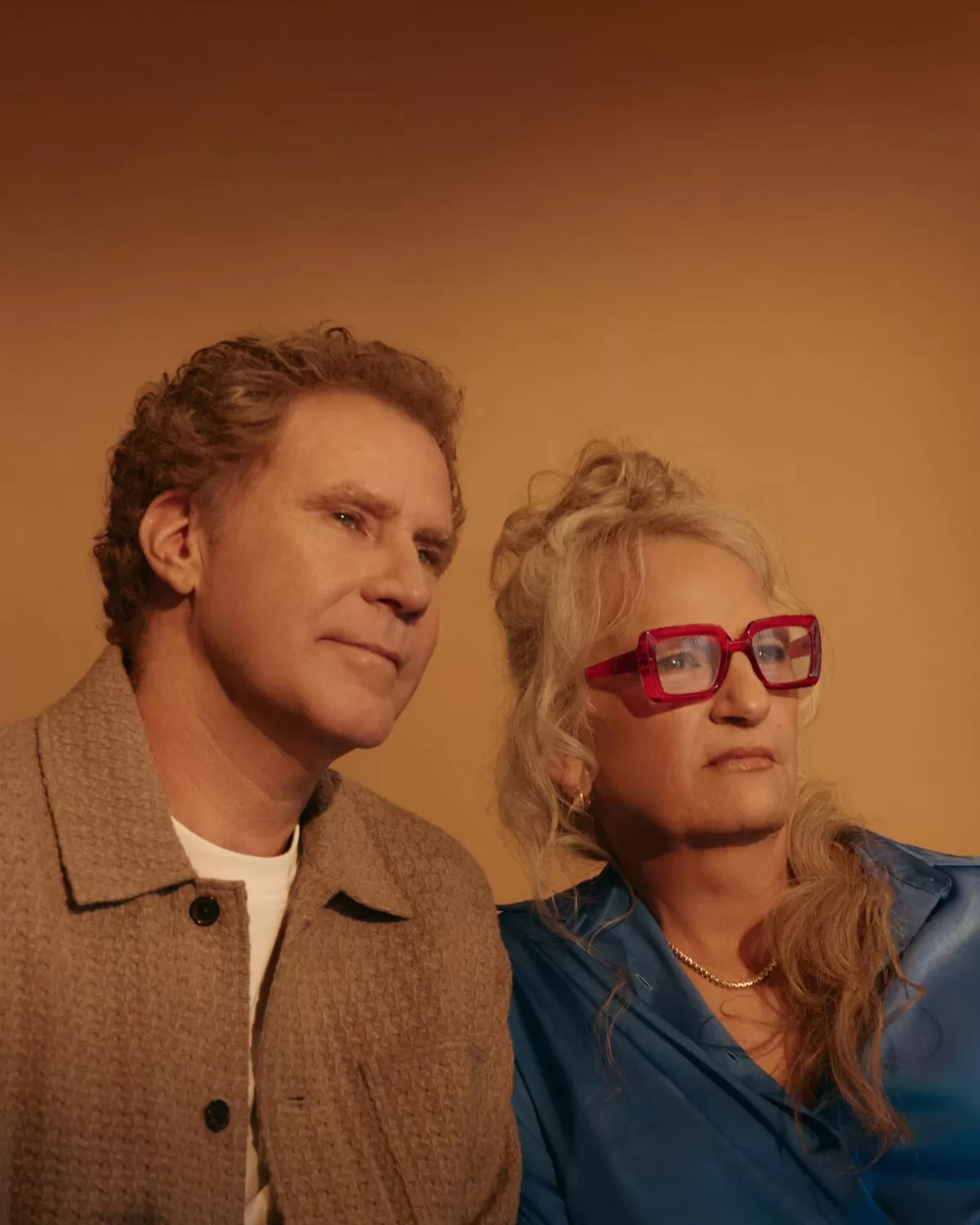Hello! I’m Mark Olsen. Welcome to another edition of your regular field guide to a world of Only Good Movies.
Ever since the documentary “Will & Harper” first disarmed audiences at the Sundance Film Festival, it has become an unexpected talking-point movie. Former “Saturday Night Live” writer Harper Steele and former “SNL” star Will Ferrell go on a road trip together to discuss their long-standing friendship in light of Steele’s coming out as a woman.
Still playing in limited theatrical release, the film is streaming now on Netflix. Matt Brennan positions the film as “the trans ‘Will & Grace’ ” for the way it brings the trans experience into the homes of people who might not otherwise feel connected to the issue, creating a sense of broader understanding and impending cultural shift.
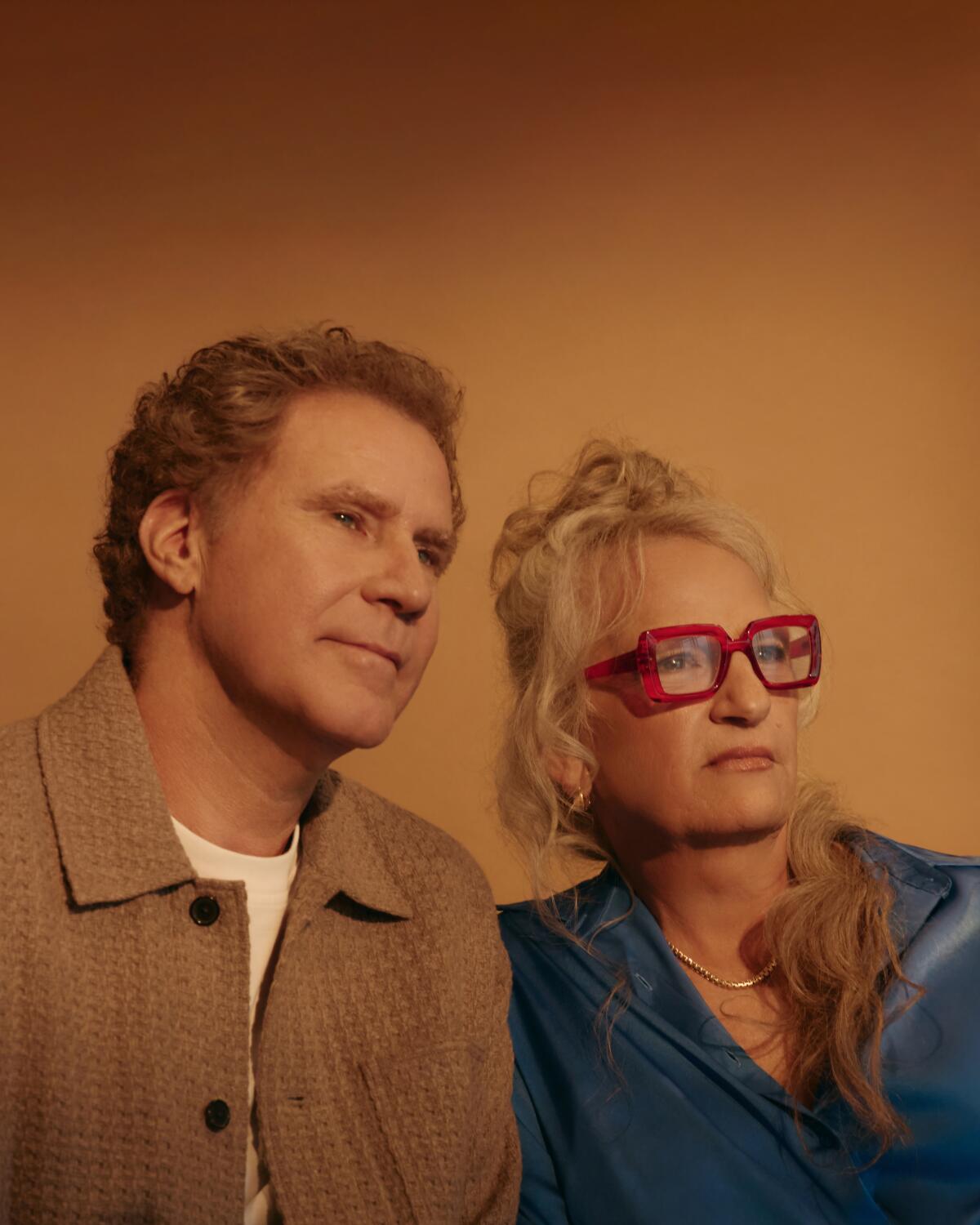
Will Ferrell and Harper Steele
(Raul Romo / For The Times)
“The impact that a sitcom like ‘Will & Grace’ had for the queer community, gay community, is massive,” said Josh Greenbaum, director of “Will & Harper.” “It’s certainly not what we would call high art, but it speaks a little bit to something we were striving for with our film. I love the expression that laughter is the shortest distance between two people. I’m a big believer in it. We talked about making sure that our film was funny and accessible and an easy on-ramp.”
Brennan went on to explore the “animating question” of “Will & Harper” and, indeed, of LGBTQ+ popular culture more broadly: “What story would we, should we, tell about ourselves if we could tell any story we wanted? Some will argue that self-expression is the goal, others moral suasion; some will prefer soft power to storming the barricades and some the reverse. Advocates for populism will confront those for high art while the diplomats among us try to squeeze them together into our society’s narrowing middle ground. And anyone who tells you that theirs is the one true path is either uninformed or lying.”
Beyond Fest moves beyond genre films
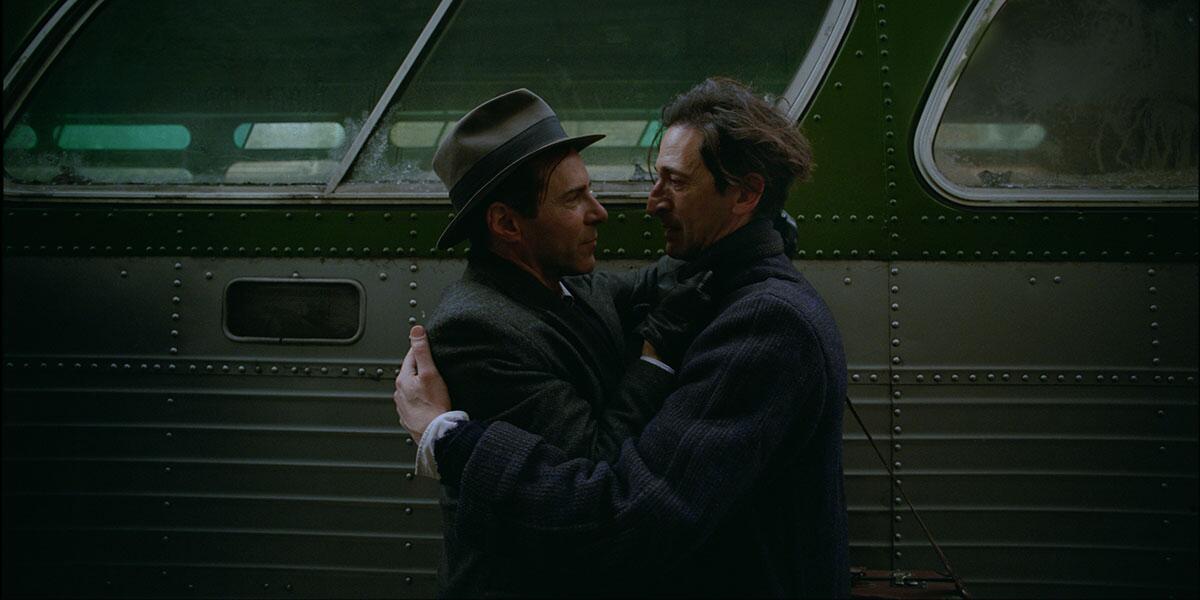
Alessandro Nivola, left, and Adrien Brody in “The Brutalist.”
(TIFF)
This year’s edition of Beyond Fest opened on Wednesday night with the world premiere of Gary Dauberman’s adaptation of Stephen King’s “Salem’s Lot,” and there is still lots to come as the festival runs through Oct. 9. This year’s program further stretches the boundaries of what it means to be a “genre festival,” including many titles that, frankly, any film festival would be happy to play, including the West Coast premieres of Brady Corbet’s “The Brutalist” in 70mm, Sean Baker’s “Anora” in 35mm, Marielle Heller’s “Nightbitch,” Jesse Eisenberg’s “A Real Pain” and the Los Angeles premiere of Ali Abbasi’s “The Apprentice.”
Probably the most anticipated event of the festival will be a 30th anniversary screening of “Speed” with director Jan de Bont and stars Sandra Bullock and Keanu Reeves.
The original 1974 L.A. Times review of Tobe Hooper’s “The Texas Chain Saw Massacre” described the film as “despicable” and “a degrading, senseless misuse of film and time.” Now a beloved horror touchstone, the film will receive a 50th anniversary tribute featuring a 12-person panel including co-writer Kim Henkel, cinematographer Daniel Pearl and actors Teri McMinn, Edwin Neal, William Vail, Allen Danzinger, John Dugan, Ed Guinn and others. Beyond Fest will also host the West Coast premiere of Alexandre O. Philippe’s documentary on the film and its legacy, “Chain Reactions.”
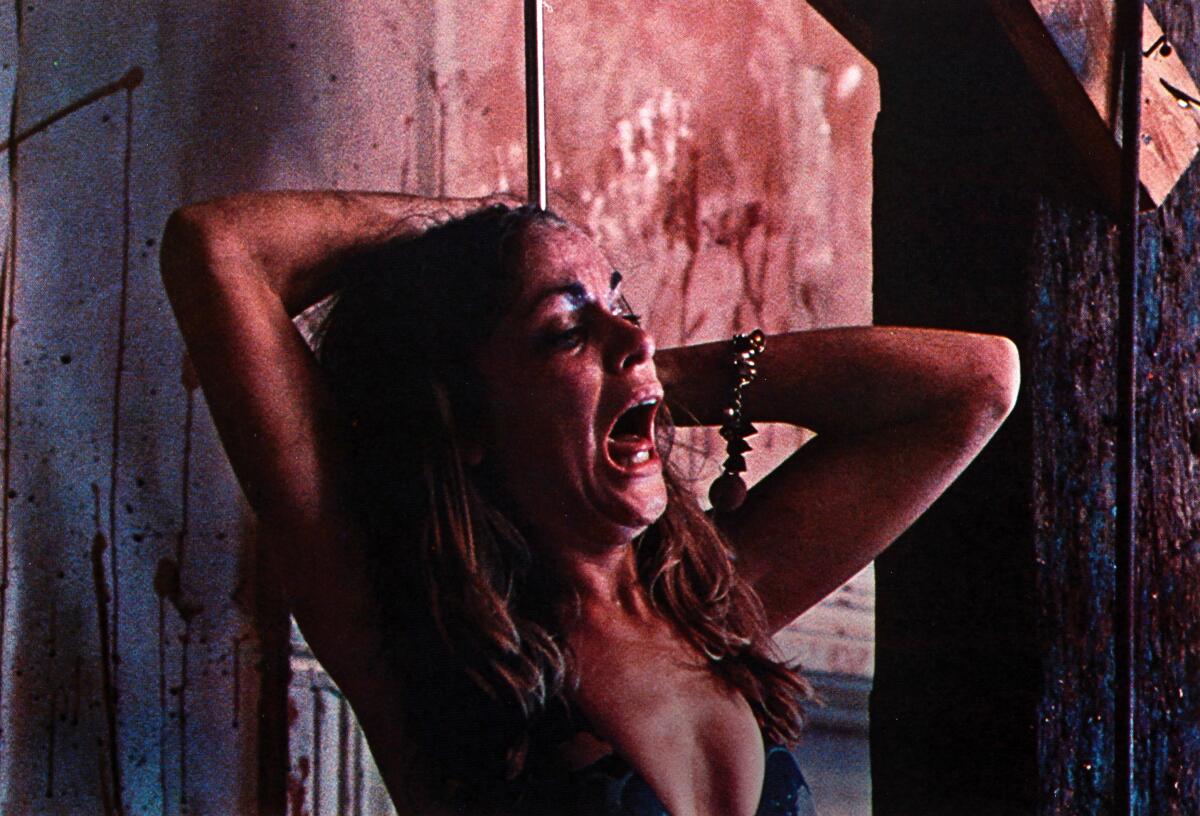
Teri McMinn in 1974’s “The Texas Chain Saw Massacre.”
(Bryanston Pictures)
Other events include anniversary screenings of “Hellboy” (with actor Ron Perlman attending) and the original “Saw” (with writer Leigh Whannel and actors Cary Elwes and Tobin Bell), and 30th anniversary screenings of “The Crow” and “Ed Wood” (with screenwriters Larry Karaszewski ad Scott Alexander).
Don Johnson will show up for a double-bill of two films he starred in, 1975’s “A Boy and His Dog” and 1990’s “The Hot Spot.” Filmmaker Tarsem Singh will present the West Coast premiere of the new 4K restoration of his 2006 film “The Fall.”
A retrospective of films by Guy Maddin will include his new “Rumours.” Writer and director Shane Black will be there for a quadruple-bill of his movies, including 35mm screenings of 1991’s “The Last Boy Scout” and 2016’s “The Nice Guys.”
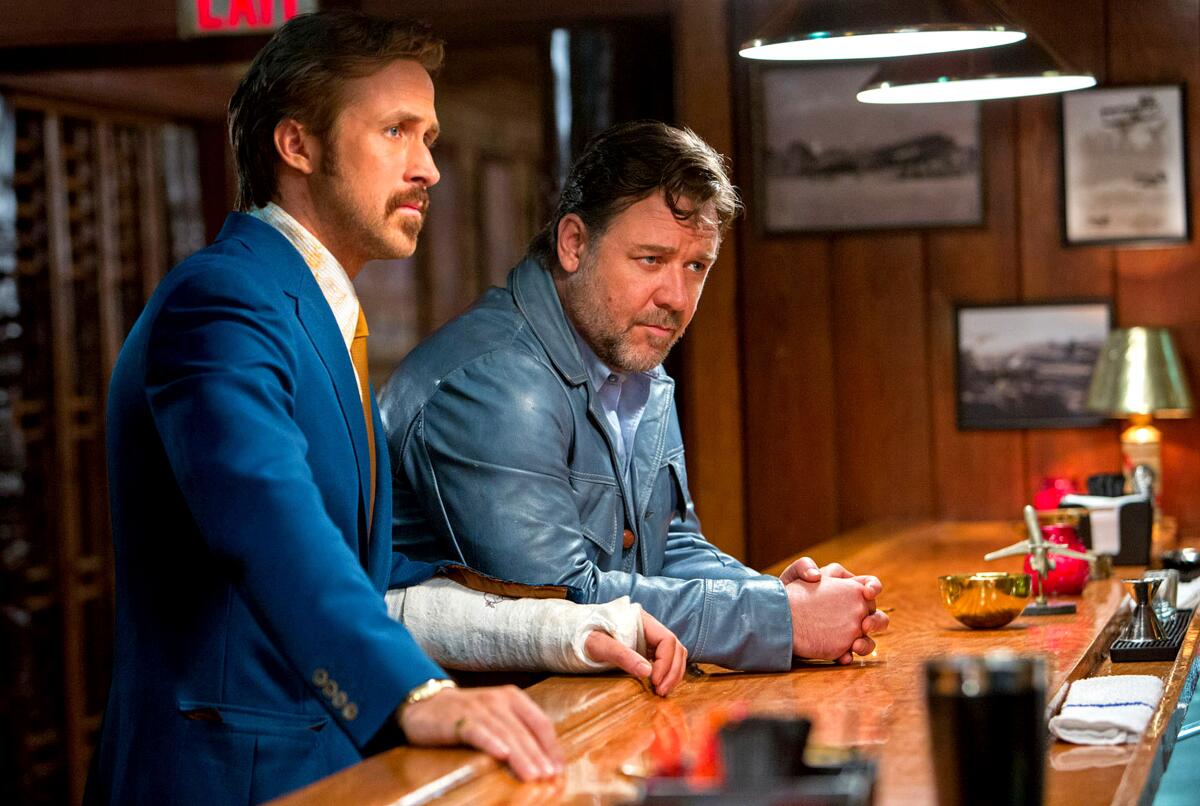
Ryan Gosling and Russell Crowe in the movie “The Nice Guys.”
(Daniel McFadden / Warner Bros. Pictures)
Sam Raimi will present a triple-bill of his 1990 “Darkman,” 1995 “The Quick and the Dead” and 2009 “Drag Me to Hell,” all to be shown in 35mm.
The festival will close with director Kiyoshi Kurosawa in-person for the West Coast premiere of “Cloud.”
While many events are already sold out, there will be stand-by lines. The energy and sense of excitement around the festival are unmatched in Los Angeles.
Francis Ford Coppola’s ‘Megalopolis’

Nathalie Emmanuel and Adam Driver in “Megalopolis.”
(Lionsgate)
Given the fact that filmmaker Francis Ford Coppola has been dreaming of making “Megalopolis” for some 40 years, its arrival this weekend in theaters must be seen as an event. The film is a head-spinning allegory on power and a vision of the future made with an idiosyncratic anything-goes tone that blends melodrama, absurdism, satire, classicism and sense of genuine stylistic freedom. It really is a movie like no other.
Set in a city called New Rome, the plot follows an architect, Cesar Catalina (Adam Driver), locked in a battle for power over the city’s future with Mayor Frank Cicero (Giancarlo Esposito). The cast also includes Nathalie Emmanuel, Jon Voight, Talia Shire, Shia LeBeouf, Jason Schwartzman, Chloe Fineman, Laurence Fishburne and Dustin Hoffman, with a wickedly sharp performance by Aubrey Plaza as a duplicitous television finance reporter known as Wow Platinum.
For opening weekend, select showtimes will be billed as “The Ultimate Experience” and will feature a live participant in the theater for a moment where Driver seems to interact with someone offscreen.
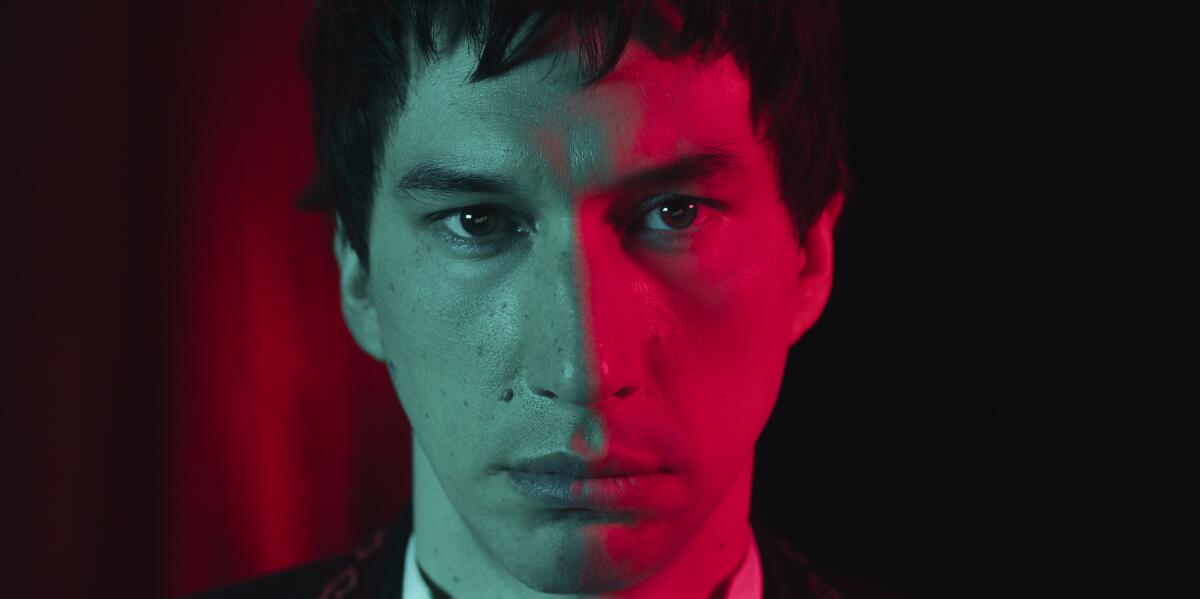
Adam Driver in the movie “Megalopolis.”
(Lionsgate)
Writing about the film from its premiere earlier this year at the Cannes Film Festival, Joshua Rothkopf said, “Once you let go of the understandable dream of Coppola returning with another masterpiece, there is much to enjoy in ‘Megalopolis,’ especially its cast members, leaning into their moments with an abandon that was probably a job requirement. … In a larger sense, Coppola has moved from the cynicism of his greatest films like ‘The Conversation’ and ‘Apocalypse Now’ — so much power doing so much corrupting — and into something that could fairly be called utopian. I’m not sure if that’s what I want from him as an artist, but I thrill to his unbowed aspiration. He’s going out not with something tame and manicured but with an overstuffed, vigorous, seething story about the roots of fascism that only an uncharitable viewer would call a catastrophe. Rather, it feels like a city. It may be the most radical film he’s ever done.”
Points of interest
Johnnie To’s ‘Election’
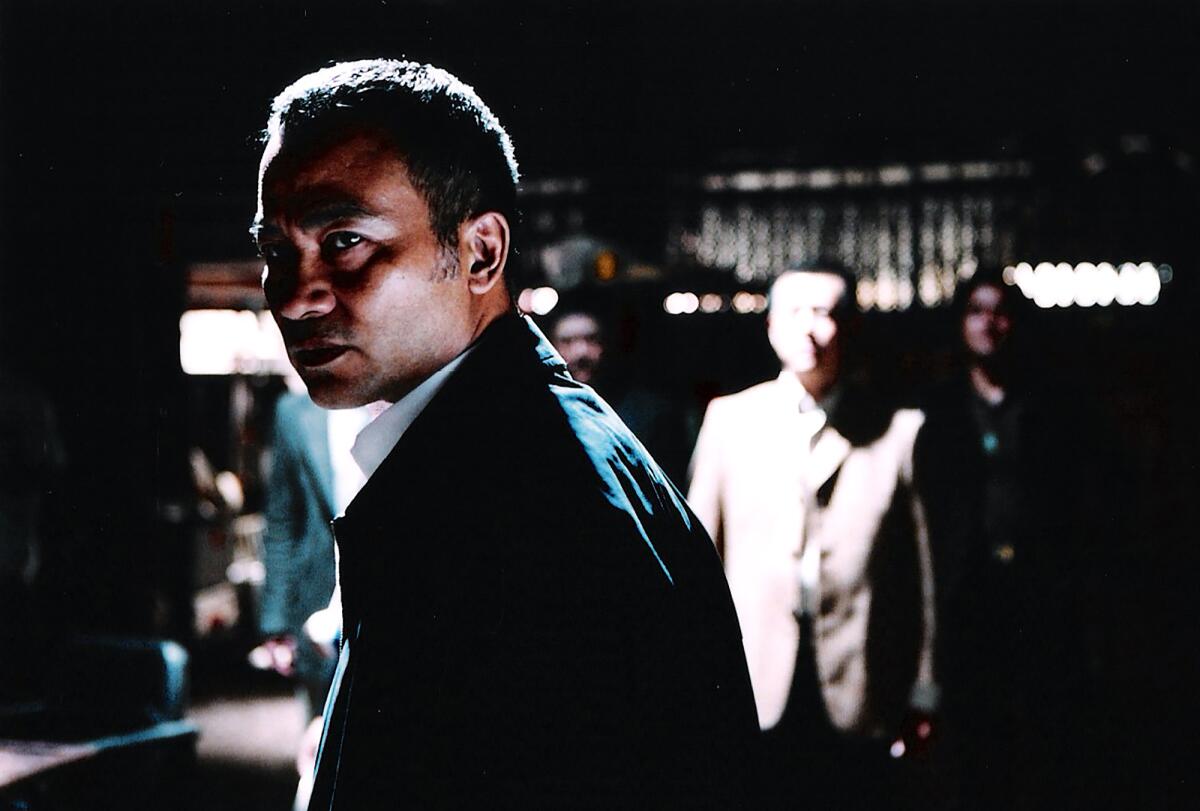
Simon Yam in Johnnie To’s “Election.”
(Tartan Films)
If, like me, anyone has been envious of the Johnnie To retrospective going on at the Museum of Modern Art in New York, Vidiots has something for you. On Thursday, Oct. 3, there will be a screening of one of the Hong Kong filmmaker’s greatest films, 2005’s “Election.” The film and its sequel, “Triad Election,” stand out in To’s filmography for the way they get into the actual machinations of how the criminal underworld operates, examining the dynamics of power along with the danger of violence. In what many have compared to To’s take on “The Godfather,” the first movie stars Simon Yam and Tony Leung Ka-fai as two very different men vying to take over as leaders of a Hong Kong crime syndicate.
In his review of the film when it was released alongside “Triad Election” in 2007, Robert Abele wrote, “While the squeamish can handle the gore-free ‘Election,’ To makes his metaphorical points here with a gathering dread and gruesome yet spot-on imagery that should firmly lay to rest any hint that these movies glorify a gangster’s worldview. Ultimately, ‘Election’ and ‘Triad Election’ — which benefit from being seen back to back — play like a mature reevaluation of To’s long-standing talent for splashy, eye-popping violence. They deliver consequences with as equal a force as the precipitating attack.”
The Vidiots screening was chosen by indie producers Keith Calder and Jess Wu Calder, who will introduce it. In an email, Keith Calder explained their selection of the film by saying, “I first met the cinema of Johnnie To and his Milkyway compatriots via questionably legal import DVDs and VCDs in the Chinatown corner-stores of New York and Los Angeles — movies that I’d watch on the 480p small screens of the early-2000s, but which live large on the big screen of my memory. When the opportunity came up to screen one of our favorite Johnnie To films at Vidiots, Jess and I leapt at the chance to see ‘Election’ on the big screen. And hopefully we can help inspire another generation of film lovers to browse through the DVD racks at Vidiots to discover other Hong Kong classics.”
Eiko Ishibashi performs ‘Gift’
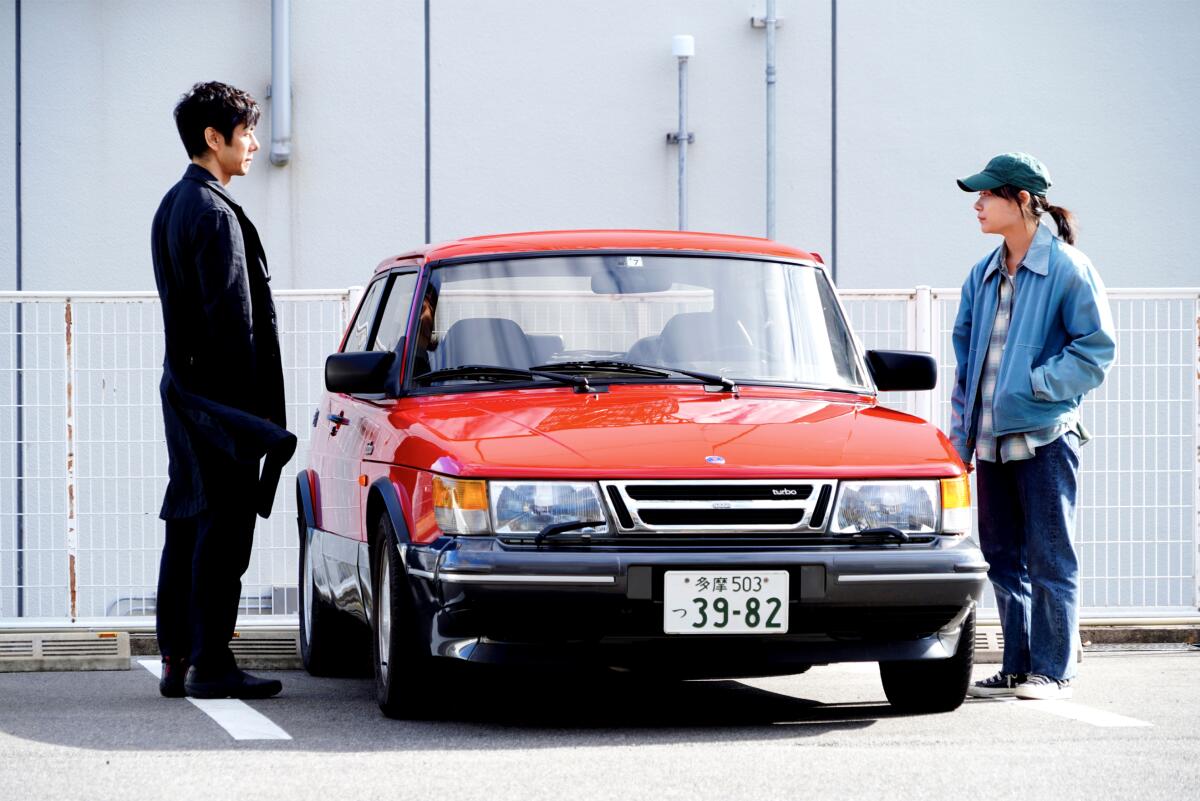
Hidetoshi Nishijima, left, and Tôko Miura in “Drive My Car.”
(Janus Films)
This weekend Acropolis will host events featuring live performances by Eiko Ishibashi, composer of the score to Ryûsuke Hamaguchi’s Oscar-winning 2021 film “Drive My Car.” On the 28th, there will be two shows of a live-score performance of “Gift,” with live music by Ishibashi and visuals created for the project by Hamaguchi. (Their collaboration grew into this year’s “Evil Does Not Exist.”) On the 29th Ishibashi will perform selections from “Drive My Car.”
In other news
The Academy Museum’s third anniversary
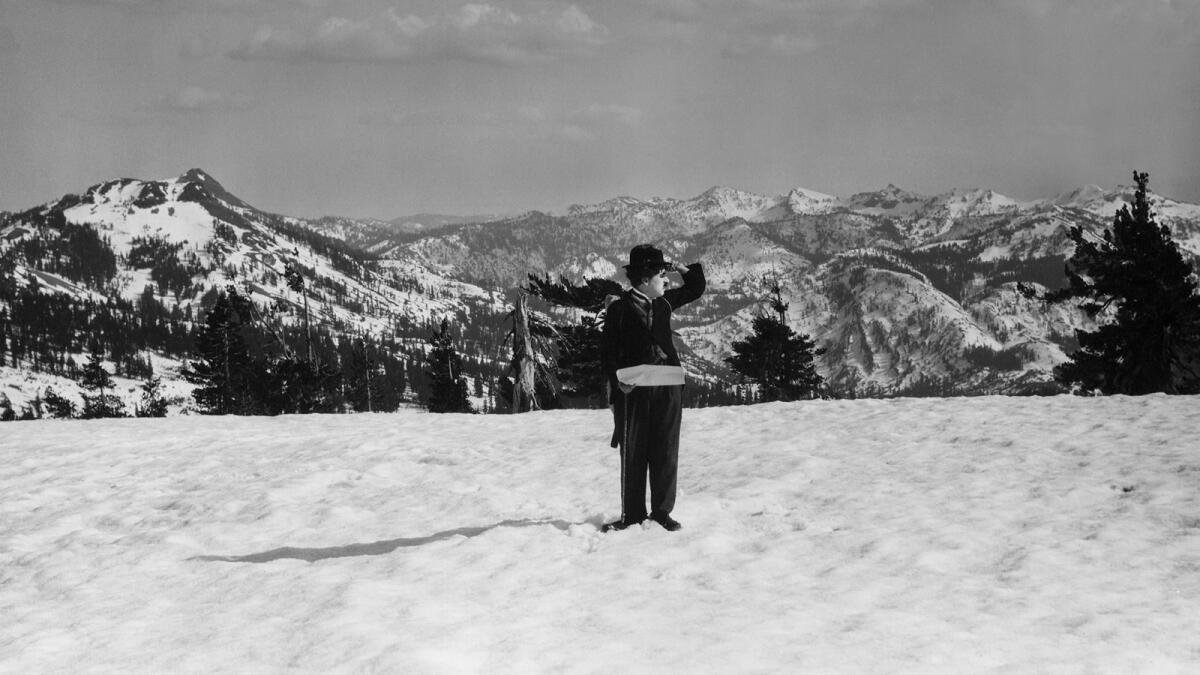
Charlie Chaplin in “The Gold Rush.”
(Janus Films)
On Sunday the Academy Museum will celebrate its third anniversary with a day of free general admission. There will be a free 35mm screening of Charlie Chaplin’s 1925 silent film “The Gold Rush.”
The film finds Chaplin as a wanna-be prospector in Alaska. As writer Mark Chalon Smith put it in The Times in 1992, “What made Chaplin unique to the silent film comedy was the layer of emotion he brought to his projects. Before him, the humor was based more on hard slapstick than character identification, and his Little Tramp became one of film’s most recognizable creations. It’s pretty obvious, but audiences adored Chaplin simply because they saw themselves in his hapless but always dignified alter-ego.”
Free screening of ‘The Outrun’

Saoirse Ronan in “The Outrun.”
(Sony Pictures Classics)
On Wednesday, Oct 2, we will have an Indie Focus Screening Series event with Nora Fingscheidt’s “The Outrun,” based on the memoir by Amy Liptrot. Star and producer Saoirse Ronan will be there for a Q&A after the screening of the film about Rona, a young woman struggling to overcome her alcoholism by moving to the remote Orkney Islands off the coast of Scotland.
In a recent interview with Emily Zemler, Ronan said of the film’s intense look at overcoming addiction, “Life is full of highs and lows and a lot of trudging forward in between. If you can just hold out for those brief moments of joy and light and life it makes it worth it and it helps you carry on. You see Rona experience every facet of it, so it feels like a celebration of life, warts and all.”
Make your RSVPs here.
